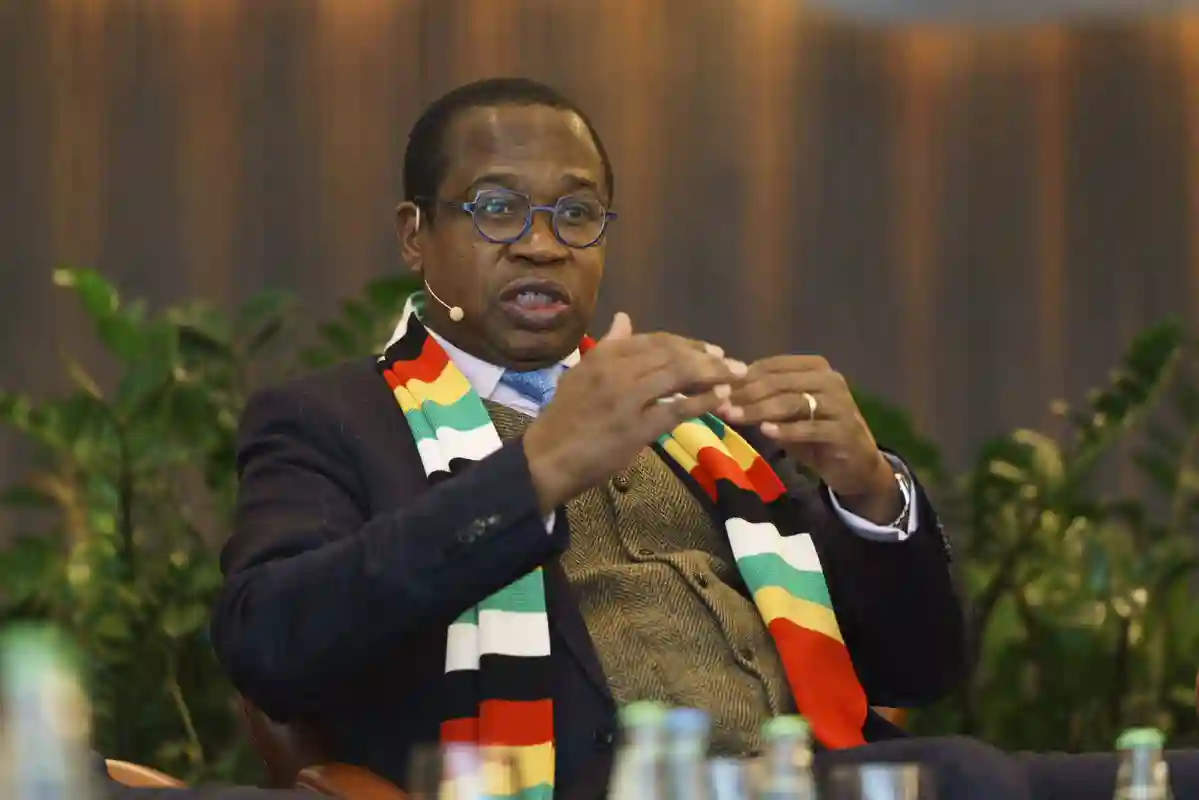Zimbabwe’s Finance and Economic Development Minister, Professor Mthuli Ncube has expressed delight after being voted and ranked in the top 5 Ministers of Finance in Africa in 2021 by a French publication, Financial Afrik. He said:
I am very pleased to have been voted and ranked in the top 5 Ministers of Finance in Africa in 2021 by the French publication “Financial Afrik”. This is based on a popular vote and qualitative analysis of candidates, and considered by a jury.
The list of the top 5 Finance Ministers ranked in FINANCIAL AFRIK include those of Mauritania, Benin, Nigeria, Zimbabwe and DRC. These ministers were judged to have implemented transformative economic policies with results. Please see page 7.
The publication said about Ncube:
Ancien chef économiste de la Banque Africaine de Développement, Mthuli Ncube a remporté la bataile contre l’inflation et la dépréciation continue de la monnaie zimbabwéenne. Son prochain objectif est de faire passer d’ici 2030 son pays dans le niveau des économies à revenu intermédiaire. En 2022, Hararé cible un déficit de 1,5% du PIB. L’inflation devrait rester à 94,6% en 2021 puis 32,6% en 2922.
Loosely translated: Former Chief Economist of the African Development Bank, Mthuli Ncube won the battle against inflation and the continued depreciation of the Zimbabwean currency. His next goal is to move his country up to the level of middle-income economies by 2030. In 2022, Harare targets a deficit of 1.5% of GDP. Inflation is expected to remain at 94.6% in 2021 and 32.6% in 2022.
This comes as former Finance Minister, Tendai Biti who is a vice president in the opposition MDC Alliance has claimed that Ncube is one of the worst ministers to ever emerge out of Zimbabwe.
Biti cites the economic crisis in the Southern African country, the ballooning debt, and the suffering of the masses as a result of the austerity measures (that were introduced by Ncube to kickstart the economy) as evidence against the Finance minister.
Ncube was appointed Finance Minister in 2018 and has since then introduced a cocktail of measures to address a number of issues including:
- a collapsing economy with very low production levels,
- heightening poverty, unemployment and inequality;
- massive shortages of fuel and other basic commodities;
- a liquidity crisis with depositors unable to access their funds from the banks;
- Monetary confusion with multi-exchange rates;
- Crippling inflation with basic goods becoming unaffordable for the majority;
- Collapsing social services characterised by a shortage of drugs and recurrence of cholera in some parts of the country;
- A doctor’s strike which seen most hospitals discharging patients before completion of treatment and placing the rest on the risk of death through avoidable conditions;
- Hopelessness among society and an increase in crimes of necessity, violence and rising suicide cases.
While Zimbabwe is on the recovery path, the country is not yet out of the woods.
Other ministers in the top five are Zainab Ahmed (Nigeria); Nicolas Kazadi (DRC), Ousmane Mamoudou KANE (Mauritania), Romuald Wadagni, (Bénin).

